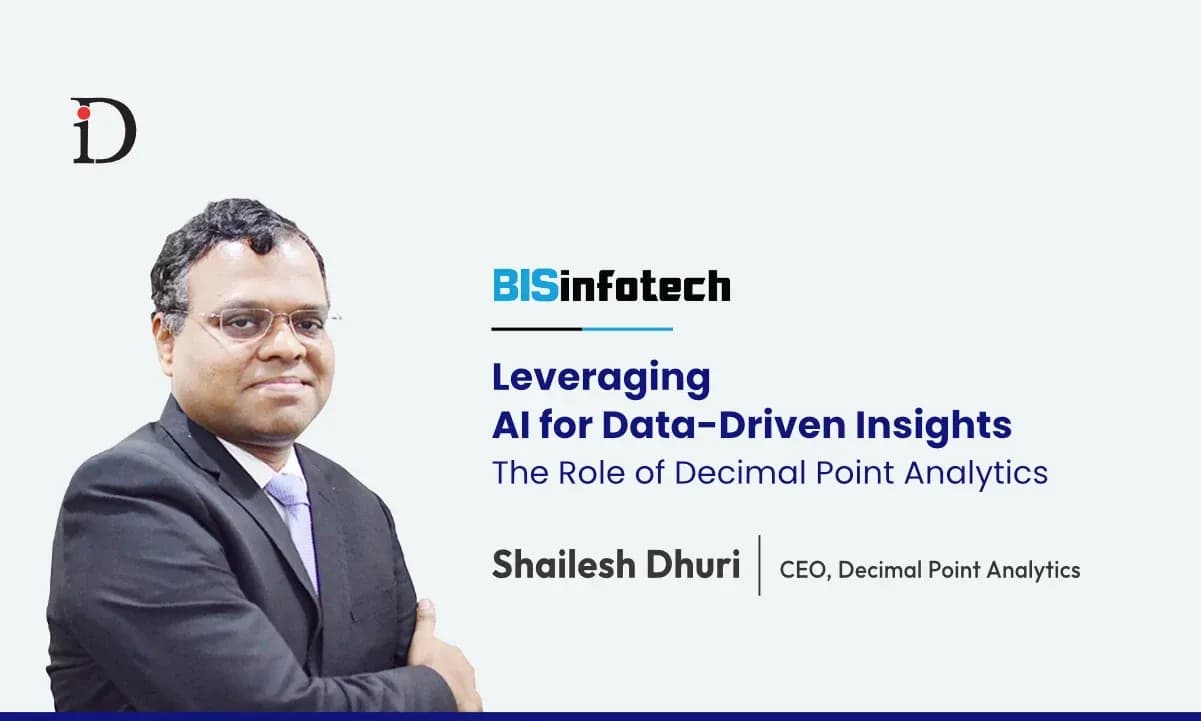
Leveraging AI for Data-Driven Insights: The Role of Decimal Point Analytics

Leveraging AI for Data-Driven Insights: The Role of Decimal Point Analytics
AI is revolutionising due diligence and investment decision-making in private equity by enabling faster, data-driven, and more comprehensive analysis. While only 2% of firms expect significant AI-driven value in 2025, 93% anticipate moderate to substantial benefits within three to five years, according to the World Economic Forum. Generative AI enhances decision-making by uncovering patterns and opportunities often overlooked through traditional analysis. It streamlines due diligence by processing vast datasets, assessing market sentiment, and evaluating geopolitical and financial risks, offering a 360-degree view of potential investments. AI also aids in deal sourcing by identifying hidden trends and undervalued assets early, giving firms a competitive edge. Post-acquisition, AI supports real-time portfolio management, helping firms adapt strategies dynamically and maximise value creation. When combined with responsible governance, AI empowers private equity firms to make smarter, faster, and more effective investment decisions across the entire lifecycle.
Safeguarding sensitive financial data requires a multi-layered approach, and AI-driven cybersecurity solutions play a pivotal role. AI enhances threat detection by analysing large datasets to identify patterns and anomalies that signal potential cyber threats. These systems continuously learn and adapt, improving their ability to detect emerging risks. Automated incident response tools enable financial institutions to respond swiftly, contain breaches, and reduce damage. AI also boosts fraud detection by monitoring transactions in real time to flag suspicious activities. AI-powered risk assessment tools help identify system vulnerabilities, while behavioural analysis detects unusual user activity, mitigating insider threats. Together, these strategies enable proactive and intelligent defence mechanisms that protect sensitive financial data, ensure regulatory compliance, and build customer trust.
Financial institutions can ensure compliance with global regulations by leveraging AI and automation to streamline complex compliance processes, enhance accuracy, and reduce operational risks. AI-powered systems enable real-time transaction monitoring, automate KYC and AML screening, and support regulatory reporting with minimal human intervention.
Natural Language Processing helps institutions track evolving regulations, interpret legal updates, and implement changes swiftly. AI-driven systems can monitor regulatory portals, validate updates, and generate real-time alerts, minimizing compliance risks and improving efficiency. Additionally, AI strengthens cybersecurity compliance by detecting threats and enforcing data protection protocols aligned with GDPR and PCI-DSS.
Through automation, financial institutions not only maintain global compliance but also improve operational efficiency, mitigate risks, and enhance trust among regulators and customers alike.
As capital markets evolve and the demand for faster, smarter insights intensifies, AI is becoming a cornerstone of transformation in investment research. The industry is experiencing a paradigm shift and traditional research models are no longer sufficient in a world where investors expect granular insights and immediate answers. Today’s investment professionals are leveraging AI to analyse massive volumes of structured and unstructured data, from earnings reports to social media sentiment, to uncover trends, identify alpha-generating opportunities, and manage risk proactively. With machine learning and NLP, research is now faster, deeper, and more accurate. However, the promise of AI comes with its own challenges. Regulatory pressures are rising, data governance is critical, and the need for transparent, explainable AI models is more pressing than ever. As the industry embraces automation and innovation, the key to staying competitive lies in blending human expertise with AI-driven intelligence to unlock deeper market insights and shape the future of capital markets.
Adopting AI in the financial sector brings a range of complex challenges, including ethical issues like data privacy and algorithmic bias, as well as technical obstacles such as securing data and managing advanced AI systems. Successful implementation requires careful strategy, from training AI models and fine-tuning AI initiatives to integrating tools seamlessly into existing workflows. It’s not just about leveraging cutting-edge technology; it’s about building a responsible and transparent AI framework. Recognising AI’s broader impact on business is crucial to preventing biased outcomes, safeguarding human judgment, and ensuring that innovation goes hand in hand with ethical integrity.
AI-driven analytics can significantly enhance transparency and accountability in financial decision-making by enabling clear, data-backed insights and fostering fair, consistent outcomes. By leveraging high-quality, diverse training data and robust AI models, financial institutions can ensure that decisions are based on comprehensive and unbiased information. Transparent algorithms and ethical AI practices make it easier to trace how decisions are made, reducing the risk of hidden biases or opaque processes. Targeted training programmes help professionals understand and responsibly use AI tools, ensuring human oversight remains central. This integration of AI not only supports more informed decisions but also strengthens trust, fairness, and compliance within financial operations.
The ideal balance between human expertise and AI-driven insights in financial services lies in leveraging AI for routine, data-intensive tasks while allowing human professionals to focus on high-value activities. As AI enhances efficiency and speed in processing information, human judgment remains essential for strategic decision-making, client relationship management, and delivering personalised financial solutions. This synergy ensures that while technology drives operational excellence, human insight adds depth, context, and empathy, resulting in more holistic and effective financial services.